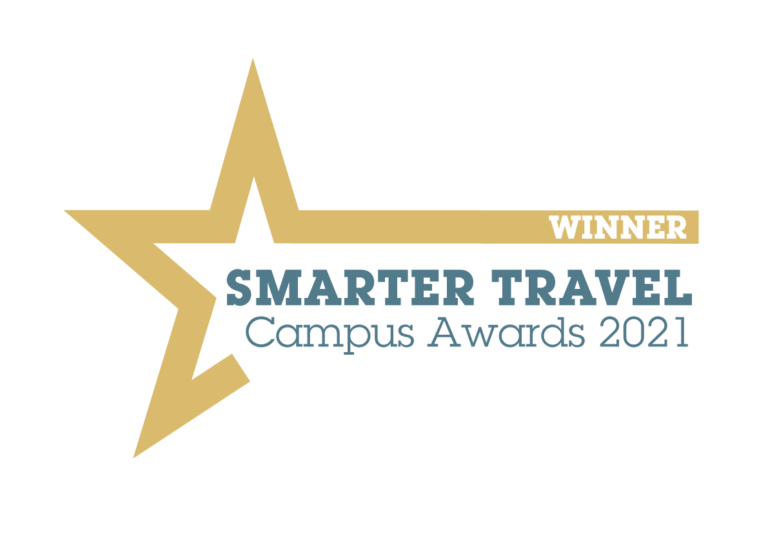Mechanical Engineering Students win first place in two Engineering Categories in the NTA's Smarter Travel Campus Awards 2021
Two 3rd year Mech Eng project groups came first in their categories as announced at the virtual award ceremony hosted by the National Transport Authority last Thursday 29 April. In total, seven 3B8 Universal Design Innovation groups made it to the final stages of this national competition which attracted a record-breaking number of entries this year from around the country.
The project HANDYNAV made up of students: Orla Charters, Con Murphy, Conor Mc Carry, Daniel McCann, David Rooney, Lucy Daly, Rory Gallagher and Shane McDonald came first in the Engineering & Innovation – Design category. HANDYNAV is a solution which communicates turn-by-turn guidance to the cyclist from Google Maps in a smart phone via vibration pulses to enhanced cycling gloves designed by the students. The signal is wirelessly transmitted to an Arduino receiver in the glove where the Google Maps API is used to actuate the vibration. Once the cyclist raises their arm to indicate, LEDs flash on the gloves to provide an automatic indicator increasing safety and improving communication to other road users.
The project OCCULUS consisting of Heather Murphy, Katherine Hardgrave, Jack Rudden-Kelly, Karen O Flynn, Conor Gallagher, Michael Kwok, Nicholas Kelly-Haughton, Divyam Gupta came first in the Engineering & Innovation – Technology category. OCCULUS provides real-time occupancy information to the driver and commuters of Dublin Bus but this could be extended to other forms of transport or even to buildings. This project sought to find a solution to help commuters living in a Covid world. The reduced capacity of Dublin Bus during the Covid-19 pandemic led to frustration at the bus stop and difficulties for drivers. The solution uses complex machine vision algorithms programmed in python to provide occupancy information over real-time database communications to commuters via a smartphone app they developed and also to a display board on the side of the bus and to the driver via a private dashboard display. This means that commuters using the App can accurately know the capacity of buses yet to arrive, and commuters and the driver at the bus stop can know with accuracy to current capacity preventing arguments with the driver. As a bus has only one space for wheelchairs, which can also be occupied by full size buggies at the discretion of the driver, the App is also extremely useful for wheelchair users who can more accurately plan their journey.
"The 3B8 cohort this year were amazing. At one point we considered dropping the design-and-build component of the module altogether given the lockdown restrictions, but the students surpassed our expectations. It was truly admirable to witness how they adapted in such difficult circumstances producing some of the best prototypes to date in this module. Dealing with ambiguity is a requirement in the modern-day engineer and it is satisfying to see that the future of engineering is in such capable hands", Assoc. Prof Bennett, module coordinator.
Further information on the winning projects and on the other 3B8 projects this year can be found on the UDI website.


